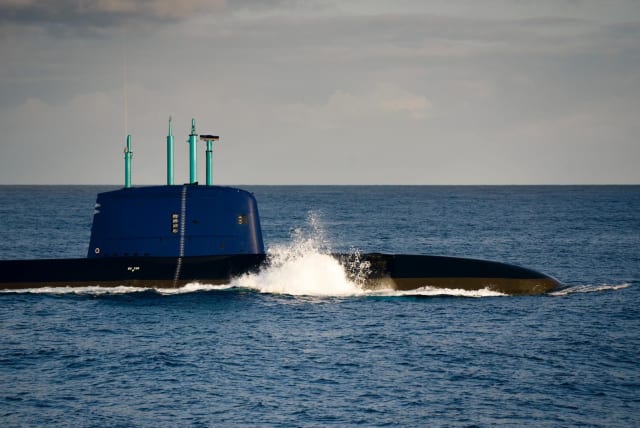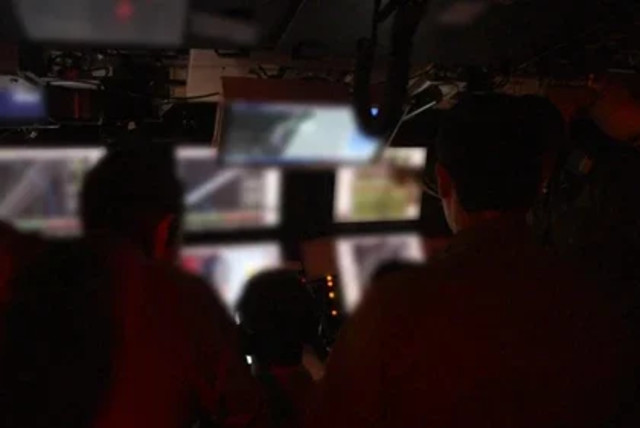Espionage and destruction: A look into the IDF's elite submarine unit

The operation of the submarine requires great secrecy, and as such, the submarine must be completely independent.
The IDF granted a special look into Shayetet 7, the IDF elite submarine unit, on Monday.
The unit's various missions include the destruction of enemy vessels, controlling the entrances to ports, carrying out espionage activities, and assisting other units in combat.
Speaking on the activities of the unit, Sgt. G explained the complexities of serving deep underwater. "A diver is a combatant of a different dimension who works in diverse ways to protect the country," adding, "We sail where we need to when we need to, and as much as we need to."
He described the subaquatic conditions the fighters live in. "When you go down the ladder and enter the submarine, you discover a different and crowded world. It's not like you imagine - the submarine has no windows but sensors that allow you to peek outside onto the water.
"The food on the submarine is prepared by a chef, who is with us on every voyage," he says, "and on Fridays, we even have a big meal together."
He expounded upon the complications of navigating a submarine.
“Just as there is a driver’s license for a car, so too we have a driver who steers with a steering wheel and has a submarine license.
"Knowing where you are at any given moment is necessary, but you face a lot of limitations, especially when we are underwater for a long time and are completely cut off from the outside world. If you deviate even a little, the submarine could hit something, drown, or be discovered.”
Working in secrecy
The operation of the submarine requires great secrecy, and as such, the submarine must be completely independent.
Therefore, the commander and crew of the submarine must make the operational decisions by themselves.
Sgt. G clarified, "The course prepared us for the feeling of being cut off, everything is intense and on high alert,"
The submarine communicates with the outside world through telegrams, which include sensitive information and instructions for the crew, along with updates.
"On long voyages," G explained, "we have no contact with the outside world. We are cut off from everything related to news, current events, and sports. But every now and then, we receive a telegram from the Kirya. They send us a concise article with updates from the last period - this is how we were informed, for example, about the ground operation when it began."
Upon returning home, the troops must “get used to life again.”
During the war, this was especially difficult. "Once, when we returned from a long voyage, the commander informed me that someone from my grade had been killed," G continued, "I missed the funeral because I was at sea, but I immediately took the things and went to the Shiva."
"It's challenging," the combattant says, "but the atmosphere on the submarine and the camaraderie are what keeps us going. We work together and do important things both as friends and as professionals. In the end, the submarine becomes a home, and the crew a family."
Jerusalem Post Store
`; document.getElementById("linkPremium").innerHTML = cont; var divWithLink = document.getElementById("premium-link"); if (divWithLink !== null && divWithLink !== 'undefined') { divWithLink.style.border = "solid 1px #cb0f3e"; divWithLink.style.textAlign = "center"; divWithLink.style.marginBottom = "15px"; divWithLink.style.marginTop = "15px"; divWithLink.style.width = "100%"; divWithLink.style.backgroundColor = "#122952"; divWithLink.style.color = "#ffffff"; divWithLink.style.lineHeight = "1.5"; } } (function (v, i) { });

